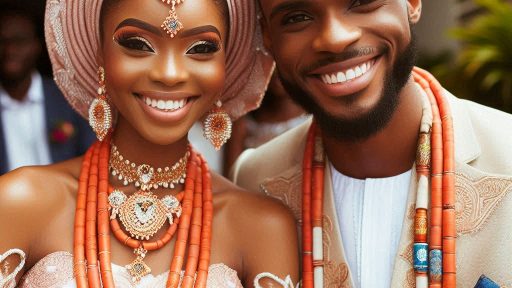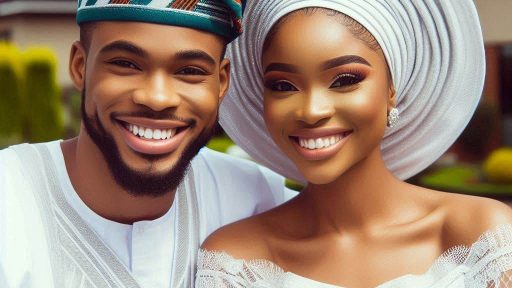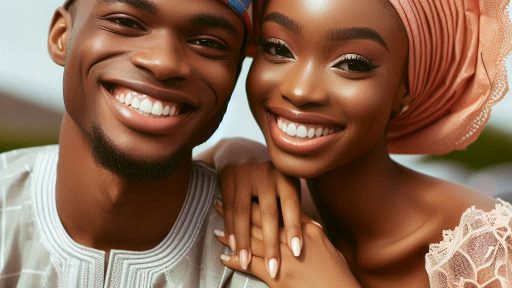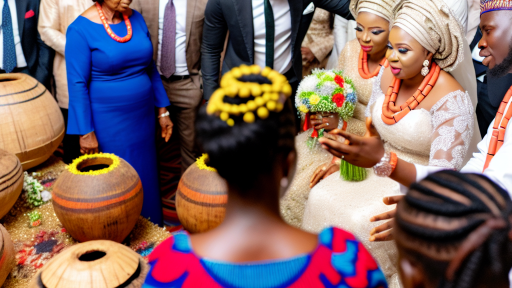Introduction
Nigerian marriage cultural practices are deeply rooted in the country’s diverse heritage.
Each ethnic group in Nigeria follows unique customs and rituals during marriage ceremonies.
These practices are not just traditions but are fundamental to the social fabric of Nigerian society.
Brief Overview of Nigerian Marriage Cultural Practices
Nigerian marriage customs vary widely across different ethnic groups, each with distinct ceremonies, rituals, and symbols.
These practices involve elaborate ceremonies that may include bride price negotiations, traditional attire, and specific rites that honor the couple’s ancestors.
The customs are deeply symbolic, often reflecting the values, beliefs, and history of the people involved.
Importance of Understanding These Practices in Nigerian Society
Understanding these marriage practices is crucial for anyone engaging with Nigerian society.
These customs emphasize the importance of family ties, community involvement, and cultural preservation.
They strengthen social bonds and create a sense of unity within the community.
By recognizing and respecting these traditions, one gains a deeper appreciation of Nigeria’s cultural richness and diversity.
In Nigerian society, marriage is more than a personal union; it’s a communal event that upholds cultural values and traditions.
Embracing these practices allows for a deeper connection to Nigeria’s vibrant culture.
Overview of traditional marriage ceremonies in Nigeria
In Nigeria, traditional marriage ceremonies hold a significant place in society.
These ceremonies are deeply rooted in cultural traditions and are considered a sacred rite of passage for couples.
Different ethnic groups and their unique practices:
- Yoruba Tribe: The Yoruba tribe in Nigeria practices elaborate traditional marriage ceremonies that involve the exchange of gifts, dowry, and a series of rituals to unite the families of the bride and groom.
- Igbo Tribe: The Igbo tribe follows traditional marriage customs such as the “Igba Nkwu” ceremony, where the groom presents gifts to the bride’s family and seeks their blessings for the union.
- Hausa Tribe: In Hausa culture, marriage ceremonies are marked by grand festivities, including music, dance, and traditional rituals that symbolize the union of two families.
- Edo Tribe: The Edo tribe in Nigeria celebrates traditional marriage ceremonies with colorful attire, cultural dances, and rituals to unite the couple in matrimony.
Importance of cultural traditions in marriage ceremonies
Cultural traditions play a crucial role in Nigerian marriage ceremonies as they serve to uphold the customs and values of the respective ethnic groups.
These traditions are seen as a way to honor ancestors, strengthen family ties, and preserve the cultural heritage of the community.
Moreover, traditional marriage ceremonies in Nigeria are not just about the union of two individuals but also about the coming together of two families.
These ceremonies create a sense of community and belonging, as family members and friends gather to celebrate the love and union of the couple.
Throughout the ceremony, various rituals and customs are observed to signify the couple’s commitment to each other and their families.
These traditions often include symbolic gestures, prayers, blessings, and exchanges of gifts that hold deep cultural and spiritual significance.
Overall, traditional marriage ceremonies in Nigeria are a reflection of the rich diversity and cultural heritage of the country.
They serve as a reminder of the importance of honoring and preserving cultural traditions in modern-day society, while also celebrating the love and union of couples in a meaningful and respectful manner.
Bride price and dowry customs in Nigerian marriages
In Nigerian culture, the payment of bride price and dowry plays a crucial role in traditional marriages.
Here, we will delve into the significance of bride price and the various customs and expectations surrounding dowry payments.
Significance of bride price in Nigerian culture
Bride price, also known as “lobola” in some Nigerian tribes, is an ancient tradition that holds deep cultural significance.
It symbolizes respect for the bride’s family and serves as a gesture of appreciation for raising her.
Additionally, the payment of bride price is seen as a way to establish a bond between the two families and ensures that the bride is valued and respected in her new home.
It is a symbol of commitment and shows the groom’s ability to provide for his wife.
Different customs and expectations regarding dowry payments
Although bride price is common in Nigerian marriages, the customs and expectations surrounding dowry payments vary among different ethnic groups.
Each tribe has its unique traditions and requirements when it comes to negotiating and settling the bride price.
For example, in the Igbo culture, the groom is expected to pay a substantial amount of money and present various gifts to the bride’s family.
This payment is a symbol of his commitment to the marriage and his willingness to take on the responsibility of caring for his wife.
On the other hand, in the Yoruba culture, the dowry payment may include items such as kola nuts, palm wine, and livestock.
The groom is also expected to demonstrate his ability to provide for his future wife and show respect for her family by fulfilling all the traditional requirements.
In Hausa culture, bride price negotiations can be quite elaborate, involving the groom, his family, and the bride’s family.
The bride’s family may specify certain items or gifts that must be included in the dowry payment, and negotiations can sometimes be lengthy and complex.
Despite the differences in customs and expectations, the payment of bride price and dowry remains an integral part of Nigerian marriages.
It is a tradition that is cherished and respected by many, as it serves as a way to honor the bride, strengthen family bonds, and uphold cultural values.
Read: Expert Tips for a Lasting Marriage in Nigeria
Role of family in Nigerian marriages
Family plays a crucial role in Nigerian marriages, as they are deeply rooted in cultural practices.
Importance of familial approval in marriage decisions
- Traditionally, Nigerian families have a say in their children’s choice of partners.
- Approval from both families is often sought before a marriage can be finalized.
- This approval is seen as a way to honor and respect the family’s traditions and values.
- It also helps to ensure the union is supported by the broader community.
Support system provided by extended family members
- Extended family members play a significant role in supporting the couple throughout their marriage.
- They offer guidance, advice, and assistance in times of need.
- Grandparents, aunts, uncles, and cousins all contribute to the overall success of the marriage.
- They provide a sense of community and belonging, which is essential in Nigerian culture.
In short, family is at the core of Nigerian marriages, providing support, guidance, and a sense of belonging to the couple.
Their approval is crucial in ensuring the marriage is accepted and embraced by the community.
Read: Exploring Nigeria’s Unique Traditional Wedding Rituals
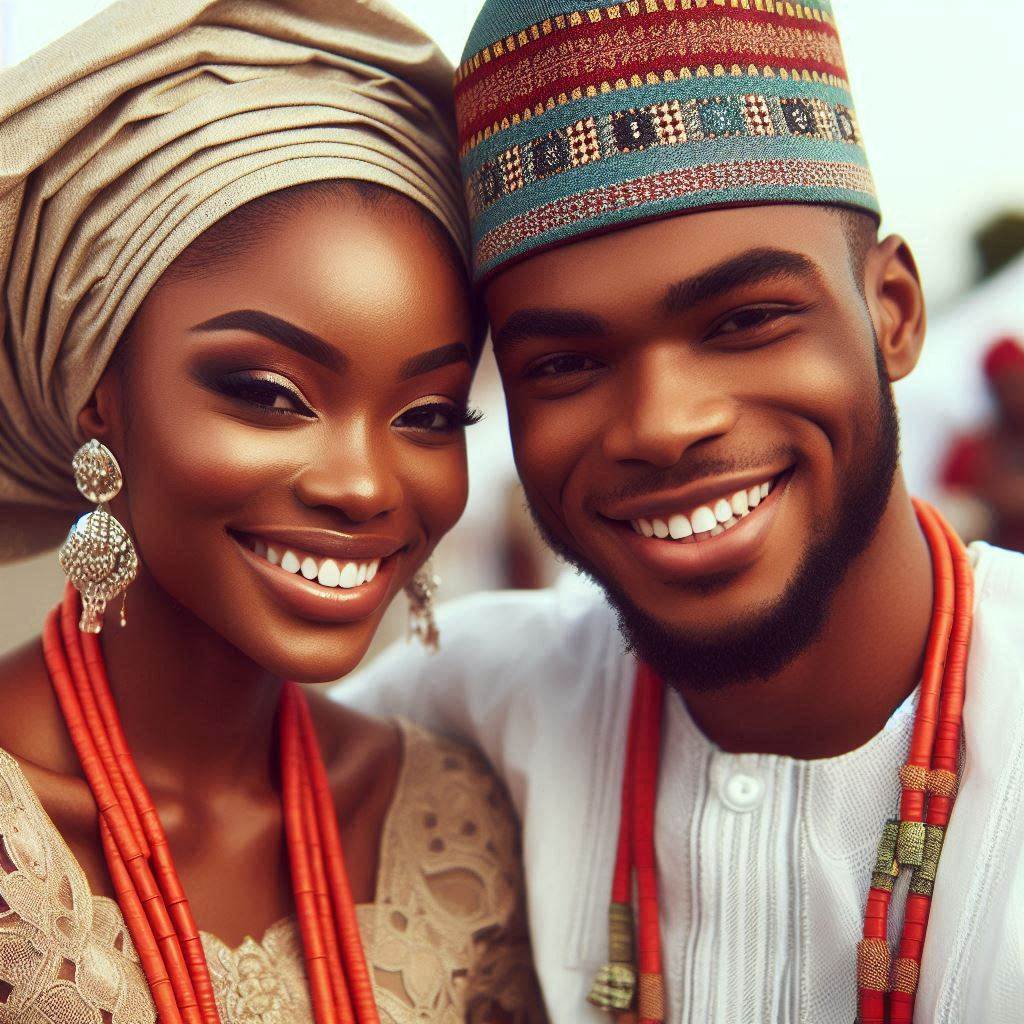
Marriage rites and rituals in Nigerian culture
Various rituals performed during traditional weddings
In Nigerian culture, traditional weddings are steeped in rich rituals and customs that have been passed down through generations.
These rituals serve as a way to not only celebrate the union of two individuals but also to honor the families involved.
One of the most important rituals in a Nigerian traditional wedding is the payment of the bride price.
This is a symbolic gesture where the groom’s family presents gifts, including money, to the bride’s family as a way to show appreciation and respect.
Another significant ritual is the exchange of vows and blessings.
During this ceremony, the couple recites traditional vows and receives blessings from their families and elders.
This serves as a way to solidify their commitment to each other and seek the blessings of their loved ones.
Additionally, there is the traditional ceremony of the breaking of the kola nut.
The kola nut is a symbol of hospitality, unity, and goodwill.
Breaking the kola nut and sharing it with guests is a way to foster camaraderie and goodwill among all present at the wedding.
Symbolism behind each ritual and its significance in marriage
Each ritual performed during a traditional Nigerian wedding holds deep symbolism and significance in the institution of marriage.
The payment of the bride price, for example, symbolizes the groom’s commitment to taking care of and providing for his bride.
It also serves as a way to show respect and appreciation for the bride’s family.
The exchange of vows and blessings signifies the couple’s willingness to uphold the traditional values of marriage and seek the wisdom and blessings of their families and elders.
It is a way to acknowledge the importance of family and community in a marriage.
The breaking of the kola nut is a gesture of unity and goodwill.
By sharing the kola nut with guests, the couple is inviting everyone present to share in their joy and celebrate their union.
It is a way to foster a sense of togetherness and community among all those attending the wedding.
Read: 7 Fascinating Facts About Marriage in Nigeria
Influence of religion on Nigerian marriage practices
Christianity, Islam, and traditional religions play vital roles in Nigerian marriage customs.
These religions shape the way marriages are conducted and the expectations surrounding them.
How Christianity impacts marriage customs
Christianity has had a significant influence on Nigerian marriage practices.
Many Christian weddings involve church ceremonies and adherence to Christian teachings regarding marriage.
For example, couples may undergo pre-marital counseling to prepare for their union.
Christian marriages often prioritize monogamy and fidelity as essential values.
The exchange of vows before God and the community is a central aspect of Christian weddings, reinforcing the commitment between the couple.
Furthermore, Christian teachings on marriage frequently emphasize mutual respect, communication, and support between spouses.
These values are reflected in Nigerian Christian marriage customs and are considered fundamental for a successful union.
How Islam impacts marriage customs
Islam is another dominant religion in Nigeria that significantly influences marriage customs.
Islamic marriages are governed by Sharia law, which outlines specific guidelines for the union between a man and a woman.
Islamic marriages in Nigeria often involve a ceremony known as Nikah, where the couple and their families come together to solemnize the marriage.
Adherence to Islamic principles, such as consent from both parties, is crucial in Islamic marriages.
In Islamic marriages, the concept of Mahr, a mandatory gift from the groom to the bride, is an essential aspect of the marriage contract.
This gift symbolizes the husband’s commitment to his wife and serves as a form of financial security for the bride.
How traditional religions impact marriage customs
Traditional Nigerian religions also play a significant role in shaping marriage customs in the country.
These religions are often characterized by unique rituals and ceremonies that are performed before and during marriage.
Traditional Nigerian marriage customs may involve ceremonies that seek the blessings of ancestral spirits or deities.
These rituals are believed to ensure the prosperity and longevity of the union by invoking the protection of supernatural forces.
Furthermore, traditional Nigerian marriage customs often involve elaborate festivities, including music, dance, and feasting, to celebrate the union of the couple.
These ceremonies serve as a way to honor cultural traditions and bring communities together.
Interplay between religious beliefs and cultural practices
The interplay between religious beliefs and cultural practices in Nigeria is complex and multifaceted.
While religion often guides marriage customs, cultural norms and traditions also play a significant role in shaping the institution of marriage.
Many Nigerians navigate a delicate balance between adhering to religious teachings and upholding cultural practices in their marriages.
This interplay can lead to unique and diverse marriage customs that blend religious and cultural elements seamlessly.
In some cases, conflicts may arise between religious beliefs and cultural practices, leading to tensions within communities.
However, many Nigerians find ways to reconcile these differences and create marriages that reflect their religious and cultural identities.
Overall, the influence of religion on Nigerian marriage practices is profound and enduring.
As Christianity, Islam, and traditional religions continue to shape the cultural landscape of Nigeria, marriage customs will continue to evolve, reflecting the dynamic nature of Nigerian society.
Read: Gen Z & Millennials: Fears of Marriage in Nigeria
Challenges Faced in Modern Nigerian Marriages
As Nigerian society continues to evolve, modern marriages are facing a host of challenges that are reshaping the way couples navigate their unions.
Impact of Globalization and Westernization on Traditional Practices
- Increased exposure to Western ideals has led to a shift in attitudes towards marriage.
- Traditional practices are being challenged and sometimes abandoned in favor of more modern approaches.
- The influx of Western media has also influenced perceptions of gender roles within marriages.
- Globalization has introduced new ideas about love, romance, and partnership that may clash with traditional Nigerian values.
- Couples must navigate this cultural collision to find a balance that works for their unique relationship.
Balancing Cultural Expectations with Modern Values in Marriage
- Nigerian couples are often caught between honoring cultural traditions and embracing modern values.
- There is pressure to uphold customs like arranged marriages or large dowries while also valuing individual choice and autonomy.
- Women, in particular, may find themselves torn between traditional expectations and personal ambitions.
- Men may struggle to reconcile their roles as providers and protectors with the changing dynamics of marriage.
- By finding ways to blend tradition with innovation, couples can create marriages that honor their heritage while allowing for personal growth.
Conclusion
Throughout this blog post, we have explored the intricate cultural practices that surround marriages in Nigeria.
From the elaborate traditional ceremonies to the significance of bride price, it is evident that these practices play a crucial role in Nigerian society.
Preserving and understanding Nigerian marriage cultural practices is essential for future generations to maintain their cultural identity and heritage.
These practices are not just rituals; they are a reflection of the values, beliefs, and traditions that have been passed down through generations.
Honoring cultural practices ensures they thrive and evolve in our ever-changing modern society. Learn and preserve these traditions.
It is through this preservation and understanding that Nigerian marriages will continue to be a symbol of unity, respect, and tradition for years to come.

